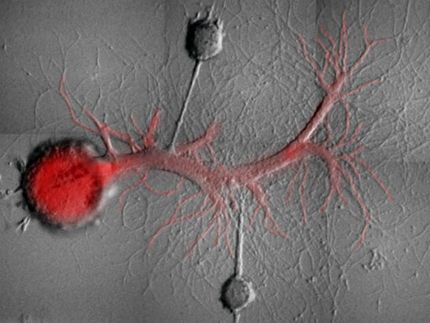Tetanus toxin found to have therapeutic properties
Advertisement
A team of researchers from the Department of biochemistry and molecular biology and the Institute of neuroscience at the Universitat Autònoma de Barcelona has discovered that tetanus toxin could be extremely useful as a therapy against psychological disorders such as depression, anxiety and anorexia, and to slow the progress of neurodegenerative disorders such as Parkinson's disease.
Tetanus toxin is a neurotoxin belonging to the same family as botulinum neurotoxins, which cause botulism. These have been successfully used as a therapy to treat disorders caused by abnormal muscular contractions such as strabismus, cerebral palsy, anal contractions and torticollis. Recently these toxins have been used even in cosmetics against wrinkles. For these therapeutic and cosmetic applications, the scientists are working with sublethal doses of toxins.
Led by José Aguilera, scientists from the Department of Biochemistry and Molecular Biology and the Institute of Neuroscience at the UAB, have studied whether it would also be possible to use sublethal doses of tetanus toxin and molecules derived from tetanus toxin for therapeutic purposes. The results have been obtained in the laboratory after 20 years of studying these toxins, and they are very encouraging.
Two separate, distinct parts form the tetanus toxin molecule: one part is the cause of the toxic effects and the tetanus symptoms; the other, however, is harmless and is able to penetrate and affect the nervous system. This harmless part, called the carboxy-terminal domain, has been reproduced in large quantities in the laboratory so that tests can be carried out on its effects on the nervous system of rats.
The experiments have shown that the harmless part inhibits serotonin from being transported through the synaptic membranes, i.e. the membranes that connect the neurones so that signals can be sent through the brain. The molecule is as effective as the selective inhibitors currently used, but they are more powerful, they last longer, and they are more specific. This inhibitory effect converts the molecule into what could be a drug with many uses. It would be more effective than Prozac and more effective than any drug that works by selectively inhibiting the transportation of serotonin in the nerve endings. Behavioural disorders such as depression, anxiety and anorexia may be treated using the molecule derived from tetanus toxin.
The researchers have also been able to show that toxin and its recombinant fragment, carboxy terminal, the harmless fragment, strengthens the neural cells and protects them from external aggressions. This means it has a neuroprotective effect that prevents the death of the neurons when they are faced with aggressive situations. This is why the scientists believe the harmless toxin fragment could be more effective than neurotrophins as protection against neurodegenerative disorders such as Parkinson's disease.























































